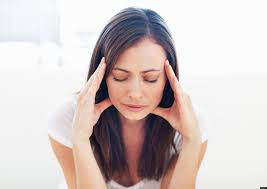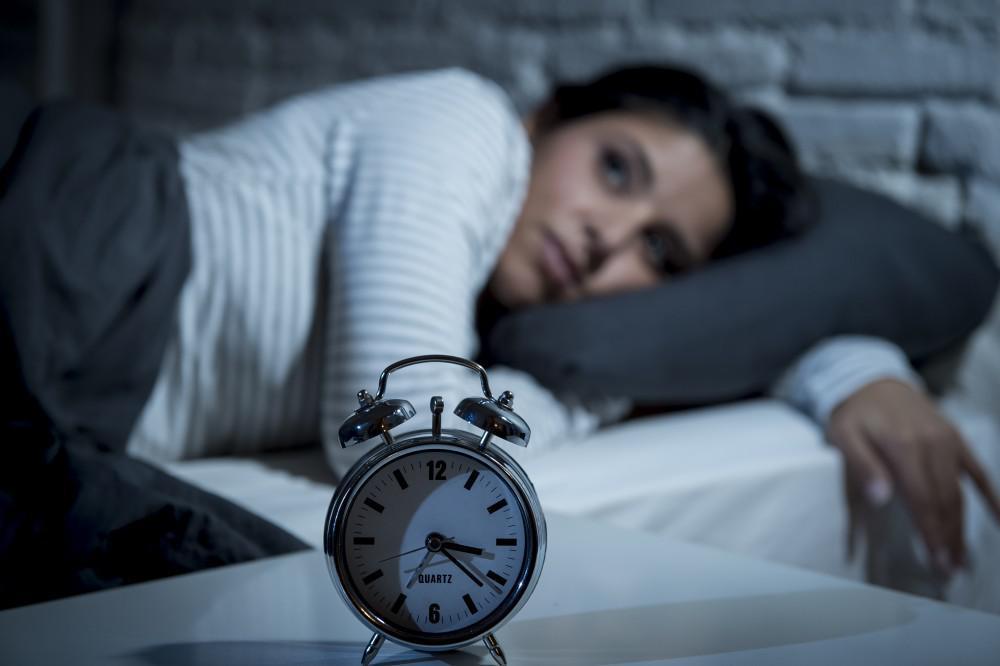Do you find that your OCD symptoms are worse at night? If so, you’re not alone. Many people with OCD find that their symptoms are more pronounced at night. This can be extremely frustrating and can make it difficult to get a good night’s sleep. In this blog post, we will discuss some tips for managing OCD symptoms at night.
Contents
What is OCD?

OCD is a mental health disorder that is characterized by obsessions and compulsions. Obsessions are intrusive, unwanted thoughts, images, or urges that cause distress. Compulsions are repetitive behaviors or mental acts that a person feels compelled to do in order to relieve the distress caused by the obsession. Many people with OCD find that their symptoms are worse at night. This can be due to a variety of factors, including increased anxiety, fewer distractions during the day, and more time to ruminate on obsessions.
Why Is OCD worse at night?
There are a few reasons why OCD may be worse at night.
- There is often less to distract us from our thoughts at night. This can allow intrusive thoughts to take over our minds as well as cause anxiety.
- We may be more tired at night, which can make it harder to manage our OCD symptoms.
- Nighttime can be a time when we are alone with our thoughts, which can be triggering for people with OCD.
- It could feel like there are more demands placed on us during the day, which can lead to increased anxiety as well as obsessive thoughts at night.
- Nightmares can also be a symptom of OCD, which can make nights particularly difficult.
- Fear of the dark is also common in people with OCD, which can make nighttime a particularly challenging time.
Hence, OCD symptoms worsen at night and it could be hard to manage them alone. There is no shame in asking for help.
How Does It Affect The Day?

OCD symptoms worsen at night which can cause extraordinary effects on our life during the day:
- Relationship problems: OCD can put a strain on relationships. The constant need for reassurance and compulsive behaviors can be exhausting for both the person with OCD and their loved ones.
- Work problems: OCD can interfere with work performance. The time spent obsessing and engaging in compulsions can lead to absenteeism and decreased productivity.
- School problems: OCD can also affect school performance. The obsessions and compulsions can take up so much time and energy that it’s difficult to focus on studies and homework.
- Personal problems: OCD can also cause problems with self-care. The compulsions can take so much time that there’s little time left for taking care of oneself. This can lead to problems with hygiene, nutrition, and exercise.
- Social problems: Social interactions can be difficult for people with OCD. The need for reassurance and the fear of being judged can make it hard to be around other people. This can lead to social isolation and loneliness.
- Sleep problems: People with OCD often have trouble sleeping. The obsessions can cause anxiety that makes it hard to fall asleep. And the compulsions can take up so much time that there’s little time left for sleep. This can lead to fatigue and decreased energy levels.
- Memory problems: People with OCD may have trouble remembering things. The obsessions can interfere with concentration that it’s difficult to remember what happened during the day.
- Emotional problems: OCD can cause a range of emotions, including anxiety, fear, shame, and embarrassment. The obsessions can be disturbing, and the compulsions can be time-consuming and frustrating. This can lead to low self-esteem and depression.
Therefore, A good night’s sleep and rest are very important for our brain to function properly. OCD symptoms are manageable and treatable if professional help is taken on time.
How To Manage OCD Symptoms at night?
There are several available treatments for managing symptoms of OCD, and also a number of routine changes you can make to get better quality of sleep.
Self-help Tips

There are a few things you can do to manage your OCD symptoms at night such as:
- Try to establish a bedtime routine and stick to it as much as possible. This can help to ease anxiety and provide some structure to your evenings.
- Avoid using screens before bed and try to wind down for an hour before sleep. This will help you to relax and prepare for sleep.
- Exercise during the day can help to reduce anxiety and improve sleep at night.
- Try not to dwell on intrusive thoughts and focus on positive, pleasant thoughts before bed. This can help to ease anxiety and allow you to fall asleep more easily.
- Start a journal and write down your thoughts before bed. This can help to identify any patterns or triggers for your OCD symptoms.
- Avoid caffeine in the evening and try to limit alcohol intake as this can interfere with sleep.
- Make sure your bedroom is dark, quiet, as well as comfortable to help you relax and sleep well.
- Stop and challenge your thoughts if they become intrusive at night. This can help to reduce the power of your OCD and also allow you to get back to sleep.
Seek professional help if you are struggling to manage your OCD symptoms. A therapist can help you to develop coping strategies and work on addressing the root cause of your OCD.
Professional help

Professionals can make a big difference in managing OCD symptoms. If you are struggling, don’t hesitate to reach out for help. Some common methods of treatment are:
- Cognitive-behavioral therapy (CBT): CBT is a type of therapy that helps to change the way you think about and respond to your OCD symptoms. This can be an effective treatment for reducing OCD symptoms.
- Exposure and response prevention (ERP): ERP is a type of therapy that involves exposure to your fears and triggers, without engaging in your usual compulsions or rituals. This can help you to become less afraid of your OCD symptoms and can reduce their intensity.
- Medication: Medication can be an effective treatment for OCD, particularly when used in combination with therapy. Commonly prescribed medications include antidepressants, anti-anxiety medications, and antipsychotics. SSRIs are a type of antidepressant that is often used to treat OCD.
- Support groups: Support groups can provide a valuable source of support and information for people with OCD. They can also help to reduce feelings of isolation and loneliness.
- Gamma-aminobutyric acid(GABA) supplements: GABA is a neurotransmitter that plays a role in anxiety. Some people with OCD find that taking GABA supplements can help to reduce their symptoms.
- Cannabidiol (CBD): CBD is a compound found in cannabis. Some people with OCD find that taking CBD can help to reduce their symptoms. It does not Produce a high. It only reduces anxiety.
- Mindfulness: Mindfulness is a type of meditation that involves paying attention to your thoughts and feelings in the present moment, without judgment. Mindfulness can help to reduce anxiety and improve your ability to cope with intrusive thoughts.
Experimental methods on trial for severe cases of OCD are:
- Deep brain stimulation (DBS): DBS is a surgical procedure that involves implanting electrodes in the brain. These electrodes are then used to deliver electrical impulses to specific areas of the brain. This can help to reduce OCD symptoms. This is a relatively new treatment for OCD and is still being studied.
- Transcranial magnetic stimulation (TMS): TMS is a non-invasive procedure that uses magnetic fields to stimulate the brain. This can help to reduce OCD symptoms. This is a relatively new treatment for OCD and is still being studied.
- Other clinical trials: There are a number of other manyl treatments for OCD that are currently being studied. These include gene therapy, stem cell therapy, and targeted drug delivery.
Therefore, The best way to manage your OCD symptoms will vary depending on the severity of your symptoms and what works best for you.
When To Seek Help?
If your OCD is causing significant distress or interfering with your ability to function, it may be time to seek professional help. Some other signs that you may benefit from professional help include:
- You have tried to manage your OCD on your own, but your symptoms are not improving.
- Your OCD symptoms are getting worse.
- You are struggling to cope with the impact of your OCD on your life.
- You have suicidal thoughts or plans.
- You have harmed yourself or someone else.
- You are not eating or drinking properly.
- You are using drugs or alcohol to cope with your OCD.
You are not alone in your struggle with OCD. Seek professional help if you are struggling to manage your symptoms. With treatment, you can live a happy and fulfilling life despite your OCD.
How to Find Help?

There are a number of resources available to help people with OCD. These include:
- Local resources: Many communities have mental health resources that can help people with OCD. These may include therapists, support groups, as well as psychiatric hospitals.
- National resources: The National Institute of Mental Health (NIMH) is a good resource for information on OCD as well as other mental health conditions. The NIMH also funds research on mental health conditions.
- Online resources: There are a number of online resources that can help people with OCD. These include support groups, forums, as well as websites with information on OCD.
- OCD treatment centers: There are specialized OCD treatment centers that offer intensive treatment for OCD. This may include inpatient or outpatient care, individual therapy, group therapy, and also medication.
Hence, There are a number of resources available to help people manage their symptoms as well as live fully and productively.
Conclusion
Obsessive-Compulsive disorder can be a deliberating condition. OCD getting worse at night could still be managed with the right help and the right people. If you know someone who struggles with OCD, provide them with the support they need. People could have different support needs, It’s not a one-box-fits-all. But being there for them could always help them feel less lonely and supported. encourage getting professional help. If you are struggling yourself, do not hesitate to ask for help. Your mental health is just as important as your physical health. Coping with your mental stress can lead to a healthier and happier life- physically, mentally, and socially.
If you are struggling with OCD, know that you are not alone. There are many resources available to help you cope with this condition. Reach out to Therapy Mantra for help getting started on the road to recovery. We have a team of mental health professionals who specialize in treating OCD. Our specialists can help you develop a treatment plan that meets your specific needs. Contact us today to book an online therapy or download our free OCD treatment app on Android or iOS for more information.


